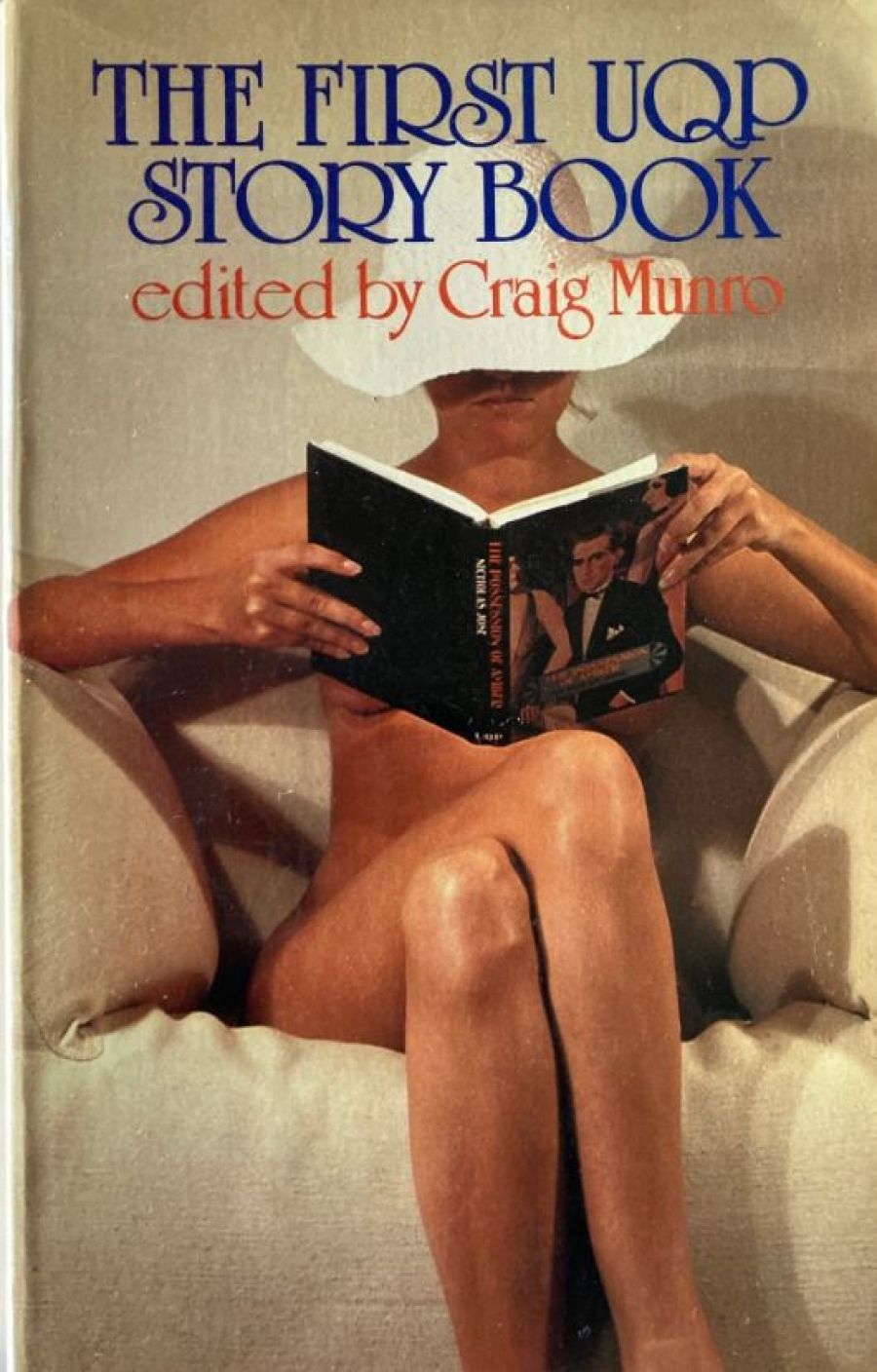
- Free Article: No
- Review Article: Yes
- Article Title: A Passionless Collection
- Online Only: No
- Custom Highlight Text:
The only woman in The First UQP Story Book is the naked one on the front cover. She is sitting in a kind of beanbag chair with her legs crossed and a floppy straw hat pulled down over her eyes. She is reading a book called The Possession of Amber which is by Nicholas Jose. Nicholas Jose is a man and so he was allowed to be actually in The First UQP Story Book.
- Book 1 Title: The First UQP Story Book
- Book 1 Biblio: UQP, 249 pp, $7.95
It is a most peculiar book. It’s neither one thing nor the other. You put it down with an uncomfortable feeling of dissatisfaction and puzzlement. There doesn’t seem to be any reason for its existence. Craig Munro, its editor, says in his introduction (a strangely passionless piece) that all the stories come from previously published collections by UQP writers, except for three stories by Frank Moorhouse – ‘a necessary inclusion in any anthology seeking to represent the best in contemporary Australian short fiction’. I take his point about Moorhouse – but why is Moorhouse the only outsider? And if this anthology is supposed to be representative, why aren’t there any women in it? And if it’s supposed to represent the best, how did those two absolutely ghastly, barely readable stories by Peter Cowan and Desmond O’Grady get into it? What on earth were Craig Munro’s criteria?
Murray Bail’s ‘The Drover’s Wife’ is wonderful, of course: original and funny with a lovely tenderness too, and full of those holes you can get in a really good story – short sentences and silences and airy moments that reverberate. Frank Moorhouse’s joke of the same name is like a layer of lard on top of Murray’s, but ‘so legend follows legend’ remarks Munro of the Lawson-Bail-Moorhouse triple-decker. come off it, Craig. The other Moorhouse stories are from the required reading list. Good stories, but sort of obvious choices. There are no real surprises in the book, and yet nor is it a solid representative selection.
Trevor Shearston’s Papua New Guinea stories are terrific, nice trimmed back restrained writing, most of the words actually doing a job of work. Peter Carey’s I like too, for the same reasons and because he’s got such a whacky imagination, and John Emery’s got plenty of muscle and, you know, laconicism. But Nicholas Jose’s and Michael Wilding’s contributions are remarkable for the clogging effect of their language. Reading them is like scrub-bashing. Often when you get there you find it wasn’t worth the trip.
Barry Oakley’s paths are gravelled and neatly clipped, but his characters are like signposts. He keeps the reader at bay with quips. He is very very, good at protecting himself. This makes his work seem about one eighth of an inch- deep. Gerard Lee will end up going the same way if he’s not careful: the easy joke thrown down like a cracker to distract you while the writer takes half a dozen steps backwards.
I keep looking back at Craig Munro’s introduction to see what he thought he was doing when he dragged this collection together. ‘They are all readable, frequently entertaining, and important stories,’ he says. Is there no blood in the man? If he can’t get any hotter than lukewarm about the job, maybe he shouldn’t have taken it on in the first place.


Comments powered by CComment